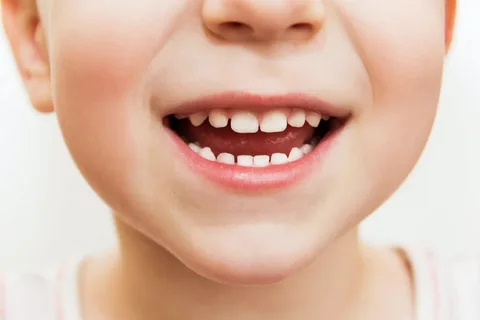Milk teeth are the baby teeth that begin to erupt in the mouth in the first year of life and reach 20 in total by the age of 2.5-3 years. During this process, decay or loss of deciduous teeth may occur due to various reasons. Milk teeth treatments are used to eliminate these situations.
- Milk teeth start to fall out around the age of 6 when the first permanent teeth start to appear in the mouth and are completely replaced by permanent teeth by the age of 12.
- During their stay in the mouth, they contribute to speech and jaw development as well as chewing.
- Therefore, their premature loss due to factors such as decay and fracture can interrupt functional and physiological development.
- Therefore, contrary to popular belief, it is important to treat them when necessary.
- In addition, the follow-up and rehabilitation of conditions such as congenital absence of deciduous teeth by specialized dentists is important.
How to treat a decayed milk tooth?
Depending on the depth of the decay and the length of time the tooth will remain in the mouth, one or more treatments such as remineralization, glass ionomer filling, compomer filling, amputation, milk tooth root canal treatment, stainless steel crown, milk tooth extraction and placeholder can be applied.
Why do milk teeth decay early?
- The intensity of bottle use during infancy
- Bottle use during sleep
- High sugar content of foods and beverages (sweetening with honey and molasses, fruit juice, etc.)
- Use of pacifiers soaked in honey, etc.
- Factors such as meeting packaged ready-to-eat foods in infancy are the main causes of early decay in deciduous teeth.
- In addition, daily cleaning of milk teeth is of great importance.
How milk tooth decay is prevented?
- Start cleaning your baby’s teeth from the moment they appear in the mouth.
- Keep your baby away from sweetened foods with high sugar content.
- Try not to introduce refined, ready-to-eat and packaged products during infancy and early childhood, if possible.
- Natural foods that require chewing and are not too soft are important in the later stages of the transition to supplementary foods because they increase saliva flow rate and contribute to physiological cleansing.
Is root canal treatment performed on milk teeth?
In cases where decay of deciduous teeth affects the tooth pulp, root canal treatment is necessary if the deciduous tooth remains in the mouth for a long time.
What happens if a milk tooth is lost prematurely?
Milk teeth ensure the growth and development of the bone by allowing chewing forces to reach the place where they are located in the jaw bones. Keeping the places of milk teeth that are lost prematurely due to reasons such as decay and trauma with fixed or removable retainers can prevent possible loss of space and prevent possible orthodontic disorders such as jaw stenosis or crowding.
What should be done in case of accidents affecting milk teeth?
Milk teeth are also affected by accidents during infancy and early childhood when motor development progresses very rapidly. Many situations such as cracks, fractures, displacement or dislocation should be treated quickly by pediatric dentists who are experts in this field. In such a case, it would be appropriate to consult a specialist as soon as possible without panicking. In severe accidents, advanced conditions such as jaw fractures will also be examined.
Kusadasi Pediatric Dentist (Specialist Pedodontist)
Ayşenur Tanrıkulu, pedodontist at Kusadasi Lotus Dental, performs milk tooth treatments for pediatric patients coming from various provinces, especially Aydin and Izmir. You can contact us from the contact page for any questions and appointments.




